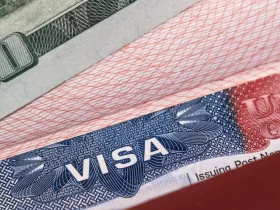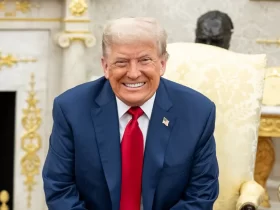By: La Revista Binacional
Argentina’s new president, Javier Milei, is committed to making colossal policy reforms, primarily in the economic sectors. After taking oath on December 10, Mr. Milei firmly believes in dollarizing the economy. In the upcoming paragraphs, we will highlight his prospective reforms, essential policy, and their impacts.
Argentina’s New President Javier Milei’s Policy Proposals And Reforms
When Milei took power, Argentina went through the worst economic crisis, resulting in the highest level of inflation. Experts believe the previous regime has printed the currency and exceeded their expenditures.
To deal with this extraordinary downsizing economy, Javier decided to take specific aggressive measures, such as curbing the size of the government in proportion to some other painful steps to revive the economy and make the country stand on its feet again. Luckily, Javier stood as an economist in the current scenario by training.
In a televised broadcast, Milei reiterated his belief that they must make every necessary decision to put the country on the right path. At the same time, he also harshly criticized the previous government’s policies, which have put Argentina on its knees. He elaborated, “We do not want to take any hard decisions, but unfortunately, we are left with no other option.”
Some Immediate Reforms
Devaluation of Peso
The first and foremost step taken by Milei is the devaluation of Argentina’s currency against the dollar. As well as the necessary and most required decision to reinstate the economy to a better position. Therefore, he hopes the authorities will devalue the peso to a rate of 54% against the US dollar.
Removal of Any Price Control Measures
Giving subsidies provides a considerable incentive to the consumers, but if the economy is drowning, it becomes an obligation to pressure the masses. Therefore, Javier immediately discontinued and canceled any price control measures or Government subsidies after assuming power. The sectors such as transportation and fuel are now also deprived of having such benefits. As the county already suffers from a price hike, this step would trigger another wave of drastic inflation. However, the nation has to swallow this bitter tablet as it is necessary to cure the economic illness.
Reduction In the Cabinet Size
No doubt the suffocating economy cannot afford high Government salaries and incentives. Keeping this in view, Javier cut short the size of his cabinet to one-half, from eighteen ministers to just nine. Similarly, he also ordered a reduction in the number of secretaries, one step below the designation of a minister, from 106 to only 54.
Reduction in Future Payments and Current Projects
In addition to decreasing the size of the cabinet, he also abolished many public labor contracts and Government advertisements in the media. Similarly, he also shortened the amount of payments that the central government is giving to provinces. Furthermore, the infrastructure development funds have also been reduced or completely stopped. These harsh decisions are being taken to remove the economy from the ventilator.
Dollarization
The appointment of Luis Caputo as the minister of economy is surprising for many observers as it contradicts Javier’s commitments to the central bank. And now many also believe that replacing the peso with the dollar is now abandoned.
However, the dollarization of the economy will still be the present administration’s prime objective, as Caputo reaffirmed in an interview with “La Nación”.
Mr. Caputo also said that the president’s objective of the campaign will be vigorously pursued at all costs. He stated that there must not be any ambiguity, that we are clear on our path, and that we will not run away from the commitments that we have made with our nation.
Impacts of Swift Decisions
Milei is dedicated to taking these problematic policy decisions to revive the economy; however, these steps will further worsen the country’s economic con in the near term. For instance, this devaluation will result in consumers quickly buying and exchanging Argentinian currency for goods. This will further trigger inflation and shorten the commodities.
However, these decisions will be fruitful for the government’s budget, and these emergency steps will ensure that the inflation cycle will eventually break. In addition, the government will be able to reduce its fiscal deficit, which will certify that the economy is out of turbulence now.
However, counter-arguments exist as many economists believe these steps will eventually lead to equation zero as Argentina’s economy is in the poorest condition, which may not be healed quickly.

The success of Policies? A Big Question
The Argentinian economy plane is in continuous turbulence, and will it be stable after dollarization? Or will the economy, country, and nation sustain such a massive policy shift? These are the primary concerns of many economists currently monitoring the situation.
A senior economist from the Peterson Institute for International Economists, Monica de Bolle, questions, “In this nation, we are heading towards a scenario where prices will spiral out of control, leading to widespread public protests. The impending situation is poised to surpass the current challenges, and there are doubts about the sustainability of political backing for the Milei administration. The overall outlook appears to be in utter chaos. The question arises: attempting to transition to the dollar amid such turmoil—how feasible is that?”
Furthermore, she pointed out that the need for more dollars will create hurdles for the central bank to successfully replace currency. Thus, the road to dollarization still needs to be clarified with a low stock of dollars.
Another policy analyst on Latin America at the Cato Institute and a think tank in Washington, Daniel Raisbeck, proposed that it is feasible and most suitable for Argentina’s sinking economy to shift immediately to a dollar boat for survival.
Regarding worries about a scarcity of dollars in Argentina for the transition, Raisbeck dismissed the concern, noting that significant portions of the economy use dollars. He cited examples such as 80% of used-car sales and a similar percentage in the real estate market being conducted in dollars.
“There’s an ample supply of dollars in Argentina, exceeding 50% of GDP, stashed away in mattresses, safe deposit boxes, or held abroad,” he referenced Argentina’s National Institute of Statistics. “The dollars are available. If the government sets a fixed exchange rate, allowing simultaneous circulation of both currencies, the gradual phase-out of the peso can be facilitated.”






































Leave a Reply